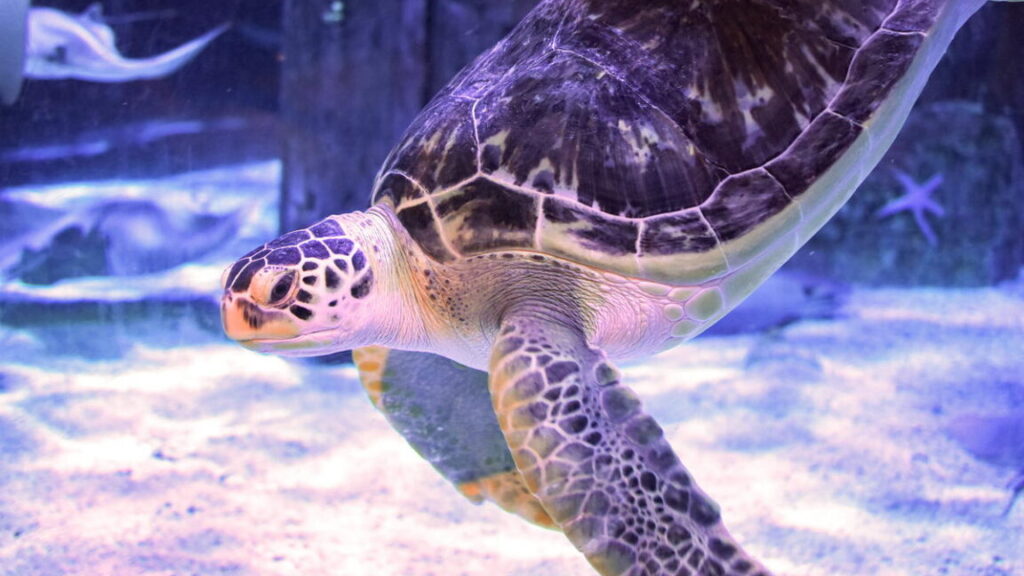Two main reasons those gas pockets appear in turtles are plastics and boat strikes.
When a turtle consumes something it can’t digest—like parts of fishing nets, plastic bottles, or even rubber gloves (yes, there was a sea turtle found with a rubber glove in its intestines)—it sometimes gets stuck somewhere along its gastrointestinal tract. This, in turn, causes gases to gather there, which throws the turtle’s buoyancy out of balance.
Those gases usually gather in the parts of the gastrointestinal tract located near the rear of the turtle, so the animal is left floating bum-up at an unnatural angle. Conditions like that are sometimes curable with dietary modifications, assisted feeding, fluid therapy, and other non-invasive means to the point where afflicted animals can be safely released back into the wild. Boat strikes, on the other hand, often lead to permanent damage.
Sea turtles’ shells are tough but not tough enough to withstand a boat impact, especially when the shell gets hit by a propeller blade. This often leaves a shell deformed, with air bubbles trapped underneath it. In more severe cases, the spinal cord under the shell also gets damaged, which leads to complete or partial paralysis.“
The most popular approach to rehabilitating these injuries relies on gluing Velcro patches to the shell at carefully chosen spots and attaching weights to those patches to counteract the buoyancy caused by the air bubbles. This is a pretty labor-intensive task that has to be done repeatedly every few months for the rest of the turtle’s life. And green sea turtles can live as long as 80 years.
Credit:
Laura Shubel
Charlotte swimming with the harness on.
Credit:
Laura Shubel
Harnessing advanced manufacturing
Charlotte, as a boat strike victim with air bubbles trapped under its deformed shell, was considered non-releasable and completely dependent on human care. Since full recovery was not an option, Mystic Aquarium wanted to make everyday functioning more bearable for both the turtle and its caretakers. It got in touch with Adia, which in turn got New Balance and Formlabs onboard. Their idea was to get rid of the Velcro and replace them with a harness fitted with slots for weights.


